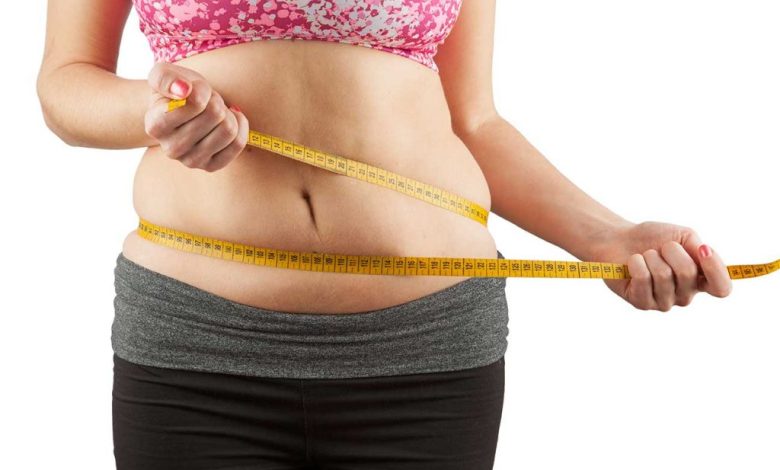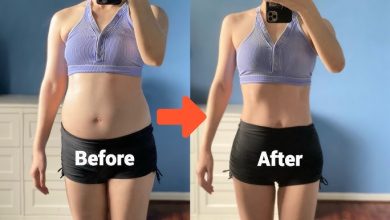What is Meno Belly and How Can You Get Rid of It Naturally?

For many women, menopause brings more than hot flashes, night sweats, and mood swings. One of the lesser-known but frustrating symptoms is the stubborn weight gain around the midsection often referred to as “meno belly.” Even women who have maintained a healthy weight for years can suddenly find themselves struggling with a bloated, thicker waistline that doesn’t seem to respond to their usual diet and exercise routines.
If you’ve noticed this change, you’re not alone — and you’re not imagining it. Meno belly is a real phenomenon linked to hormonal shifts during menopause, and while it can be stubborn, it’s not permanent. With the right understanding and a few natural strategies, you can reduce it, improve your health, and feel more confident in your own skin.
Understanding Meno Belly
What Is Meno Belly?
Meno belly refers to abdominal weight gain and bloating that many women experience during perimenopause (the transitional years leading up to menopause) and menopause itself. Unlike the gradual weight gain that comes with aging, meno belly often feels sudden and resistant to traditional weight loss methods.
It’s characterized by:
- Increased fat storage around the abdomen
- A bloated or puffy stomach
- A shift from a pear-shaped body to more of an apple shape
- Difficulty losing weight despite similar eating and activity patterns as before
Why Does Meno Belly Happen?
1. Hormonal Changes
The main culprit is the decline in estrogen levels. Estrogen plays a role in regulating metabolism, body fat distribution, and even how your body responds to insulin. When estrogen drops:
- Fat tends to be redistributed from hips and thighs to the abdominal area
- Muscle mass declines, slowing metabolism
- Insulin sensitivity changes, increasing fat storage
2. Slower Metabolism
Around menopause, the body naturally burns fewer calories at rest due to muscle loss (sarcopenia). This makes it easier to gain weight, especially if eating habits remain unchanged.
3. Increased Cortisol (Stress Hormone)
Menopause can increase stress levels and poor sleep, both of which raise cortisol. High cortisol encourages abdominal fat storage and worsens bloating.
4. Insulin Resistance
Hormonal changes can lead to insulin resistance, making it harder for your body to regulate blood sugar and more likely to store fat.
5. Digestive Changes
Aging and hormonal fluctuations can slow digestion and alter gut bacteria, leading to more bloating and discomfort.
Health Risks Linked to Meno Belly
This isn’t just about appearance — excess abdominal fat is linked to serious health risks:
- Heart disease
- Type 2 diabetes
- Metabolic syndrome
- High blood pressure
- Certain cancers (like breast cancer)
- Non-alcoholic fatty liver disease
That’s why tackling meno belly isn’t just about fitting into your clothes again — it’s about protecting your long-term health.
How to Get Rid of Meno Belly Naturally
The good news is that meno belly can be reduced with natural strategies that address the root causes — hormonal balance, metabolism, and lifestyle factors.
1. Balance Your Hormones Naturally
While hormone replacement therapy (HRT) is one option, many women prefer natural approaches:
Foods that help:
- Flaxseeds, soy, and legumes — contain phytoestrogens that can mildly mimic estrogen
- Cruciferous vegetables (broccoli, Brussels sprouts, kale) — support estrogen metabolism
- Healthy fats (avocados, nuts, olive oil) — support hormone production
Lifestyle tips:
- Reduce exposure to endocrine-disrupting chemicals (plastics, harsh cleaners, synthetic fragrances)
- Manage stress to lower cortisol through meditation, deep breathing, or yoga
2. Eat for a Leaner Midsection
Key principles:
- Prioritize protein: Supports muscle mass and keeps you full (chicken, fish, eggs, legumes)
- Cut back on refined carbs and sugar: Helps prevent insulin spikes
- Emphasize whole foods: Vegetables, fruits, whole grains, lean proteins, healthy fats
- Stay hydrated: Water helps flush toxins and reduce bloating
Anti-bloating foods:
- Cucumber
- Ginger
- Peppermint
- Pineapple (bromelain enzyme helps digestion)
3. Strength Training to Preserve Muscle
Cardio alone won’t melt meno belly. Muscle burns more calories even at rest, so strength training is essential:
- Weight lifting
- Bodyweight exercises (push-ups, squats, planks)
- Resistance bands
Aim for 2–3 sessions per week, working all major muscle groups.
4. Manage Stress and Improve Sleep
High stress and poor sleep make it nearly impossible to lose belly fat.
Tips:
- Go to bed at the same time each night
- Limit caffeine after 2 p.m.
- Practice mindfulness or journaling before bed
- Avoid screens at least 1 hour before sleeping
5. Support Gut Health
A healthy gut reduces bloating and improves metabolism:
- Eat fermented foods (yogurt, kefir, sauerkraut, kimchi)
- Include prebiotic fiber (onions, garlic, asparagus, bananas)
- Avoid excessive alcohol and processed foods
6. Stay Consistently Active
NEAT (Non-Exercise Activity Thermogenesis) is as important as gym workouts — all the movement you do outside of formal exercise.
- Take stairs instead of elevators
- Go for short walks after meals
- Stand up and stretch every 30–45 minutes
7. Herbal and Natural Supplements
Some herbs can support hormonal balance, digestion, and metabolism:
- Black cohosh — may help with menopause symptoms
- Maca root — supports energy and hormone balance
- Ashwagandha — reduces cortisol
- Green tea extract — boosts metabolism
- Probiotics — support gut health
Always consult your healthcare provider before starting any supplement.
8. Stay Patient and Consistent
Menopause-related weight gain took months or years to appear — and it won’t disappear overnight.
Focus on steady, sustainable changes rather than quick fixes.
Sample 7-Day Meno Belly-Friendly Meal Plan
Day 1
- Breakfast: Greek yogurt with flaxseeds and berries
- Lunch: Quinoa salad with chickpeas, spinach, olive oil, and lemon
- Dinner: Grilled salmon with steamed broccoli and sweet potato
- Snack: Handful of almonds
Day 2
- Breakfast: Scrambled eggs with spinach and tomatoes
- Lunch: Lentil soup with whole grain bread
- Dinner: Baked chicken breast with roasted Brussels sprouts
- Snack: Sliced cucumber with hummus
Day 3
- Breakfast: Oatmeal with chia seeds and banana
- Lunch: Grilled vegetable wrap on whole grain tortilla
- Dinner: Stir-fried tofu with brown rice and bok choy
- Snack: Peppermint tea and walnuts
Day 4–7: Continue rotating lean proteins, healthy fats, and high-fiber vegetables.
Common Mistakes When Trying to Lose Meno Belly
- Doing only cardio — neglecting strength training slows metabolism.
- Cutting calories too much — leads to muscle loss and more belly fat.
- Ignoring stress management — high cortisol keeps belly fat on.
- Skipping protein — essential for muscle maintenance.
- Overeating “healthy” foods — portion control still matters.
Final Thoughts
Meno belly may feel like an unfair side effect of menopause, but it’s your body’s way of adjusting to a new hormonal environment. By focusing on balanced hormones, muscle preservation, stress reduction, gut health, and nutrient-rich foods, you can naturally reduce abdominal fat, improve your energy, and protect your health.
Your midlife years can be a time of strength, vitality, and self-confidence — and getting rid of meno belly is just one step toward feeling your best.




